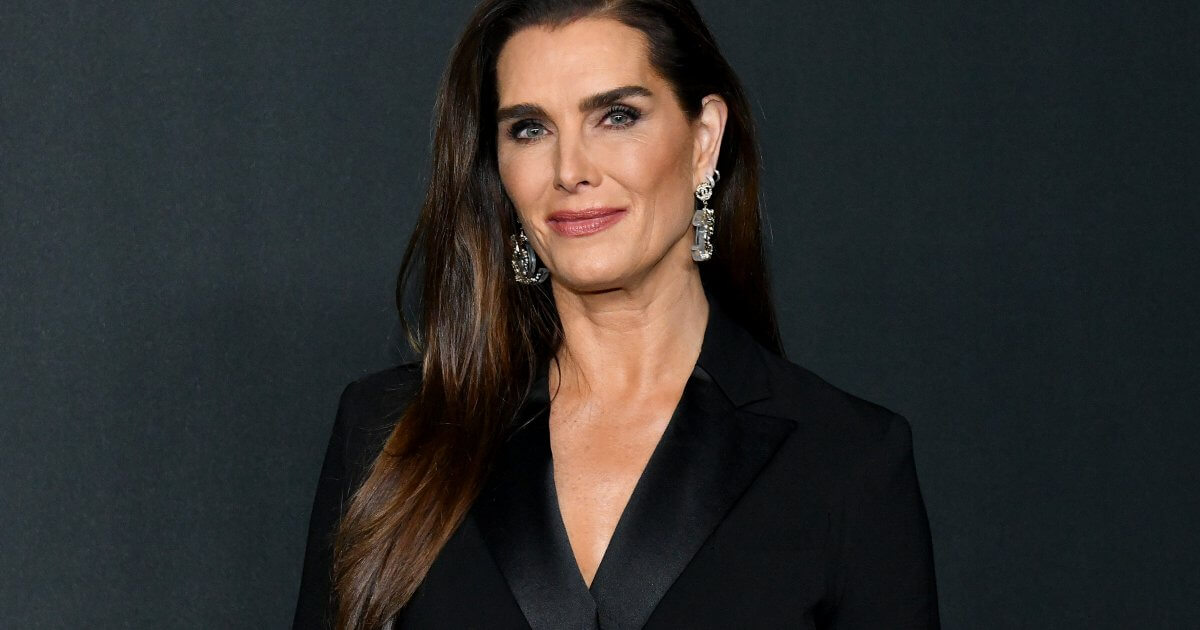The Importance of Sunscreen
- Actress Brooke Shields was diagnosed with solar keratosis most common precancer that forms on skin at an annual check-up. This diagnosis puts her at a higher risk of skin cancer.
- Shields never used sunscreen growing up, but now she understands the importance of protecting her skin from immediate and future skin damage. Ninety percent of melanomas, the deadliest type of skin cancer, are caused by ultraviolet radiation from the sun. This means excessive time in the sun, even as a child, puts you at a higher risk.
- One of our experts recommends you use sunscreen with at least SPF 30 and reapply every two hours. She also says your sunscreen should be broad spectrum meaning it covers both UVB and UVA rays.
The 56-year-old was diagnosed with solar keratosis, also known as actinic keratosis, after her doctor removed cells from her lips during an annual check-up. According to the Skin Cancer Foundation, actinic keratosis is the most common precancer that forms on skin damaged by chronic exposure to ultraviolet (UV) rays from the sun and/or indoor tanning. This diagnosis puts her at a higher risk for developing skin cancer, but luckily she’s cancer-free today.
Read More“I come from a generation that was never educated on the seriousness of skin cancer,” Shields said. “I really was shockingly and admittedly embarrassingly ignorant to it. I thought, ‘I’m not going to get cancer from this, come on.'”
But now Shields knows better. She’s using her platform to educate others about the dangers of sun exposure, and she’s working hard to get her children on board too.
“Now, with my children, using sunscreen is a fight,” she told Elle. “I’ve tried to scare them into using more sunscreen, but they think they’re invincible… I have to fight that and try to bribe them into wearing more sunscreen. ‘I’ll buy you something really nice, but I need you always to include sunscreen,’ I’d say.”
Understanding Skin Cancer
The Skin Cancer Foundation estimates that more than 5 million cases of skin cancer are diagnosed in the United States every year, making it the most common cancer in the United States.
In a previous interview with SurvivorNet, Dr. Dendy Engelman from MDCS Dermatology in New York shared the top five things you can do to avoid skin cancer:
- Avoid sun during peak hours, which is 10 a.m. to 2 p.m.
- Wear a wide brimmed hat and sunglasses to protect the tops of our heads, the tops of our ears and the delicate area around the eye.
- Wear at least SPF 30 sunscreen and make sure to reapply every two hours or after excessive sweating or swimming.
- Have yearly skin checks (with a professional), because it's difficult to evaluate areas all over the body.
- Avoid tanning beds. There are no "good" tanning beds, and they can significantly increase your risk of melanoma.
Top 5 Ways to Protect Your Skin From Skin Cancer
No matter how vigilant you are about decreasing your risk for skin cancer, its important to still prioritize routine checkups with your dermatologist and always be on the lookout for any skin changes in between visits.
Choosing the Right Sunscreen
It’s important to note that 90 percent of melanomas, the deadliest type of skin cancer, are caused by ultraviolet radiation from the sun. This means excessive time in the sun, even as a child, puts you at a higher risk. Brooke Shields now uses sunscreen every day even in the winter because she understands that it can save her skin from both immediate and future damage.
“One misconception that people have about using sunscreen is that they think they only need to wear it on the summer sunny days,” Shields told Elle. “But the sun damage is undeniable.”
Many other people use sunscreen every day too, but choosing the right product can be just as important as consistency. Dr. Cecilia Larocca, a dermatologist at Dana-Farber Cancer Institute, recommends you use sunscreen with at least SPF 30 and reapply every two hours. Your sunscreen should also be broad spectrum, says Dr. Larocca, meaning it covers both UVB and UVA rays.
Which Sunscreen Should I Choose To Prevent Cancer?
Manhattan dermatologist Dr. Snehal Amin tells SurvivorNet that while brand name is not very important, considering the activities you'll be doing while wearing the sunscreen and paying attention to the ingredients and feel of the sunscreen can make a difference.
"My recommendation is really focus on the ingredients rather than the brands," Dr. Amin says. "If you like the way the brand feels on your skin, if you like the purpose of the brand for instance, sport versus daily use or daytime use versus a short burst of activity use I think those are more important factors than actual brands."
Learn more about SurvivorNet's rigorous medical review process.


